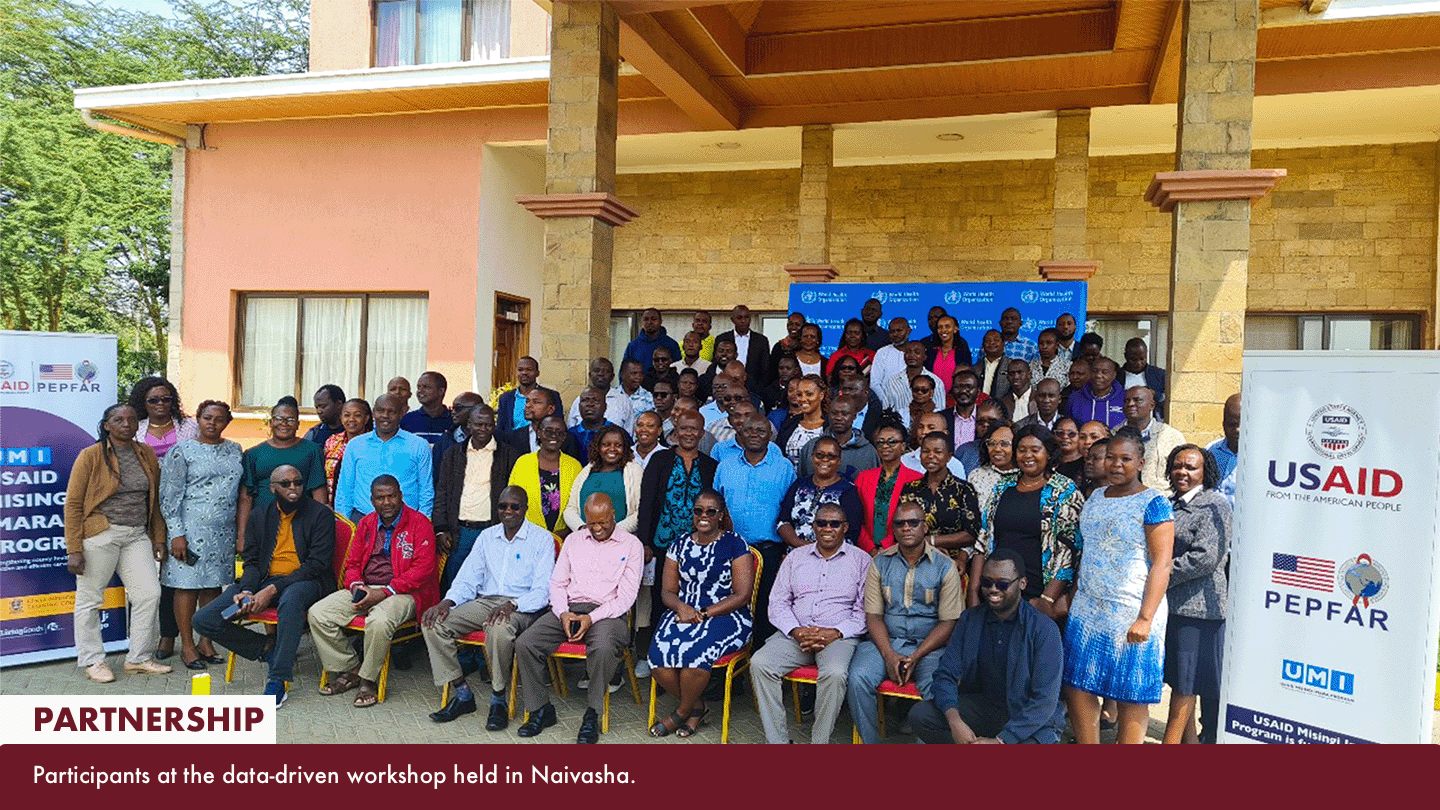
Kenyan Healthcare to Get a Boost with Data-Driven Workforce Planning
Access to real-time data on healthcare workers—knowing their numbers, specialties, and distribution patterns—is crucial for planning and providing evidence-based decision-making. For this reason, the Kenya Medical Training College (KMTC), through its Misingi Imara Program funded by the United States Agency for International Development (USAID), organized a workshop for health officers nationwide to learn new ways to use data to improve access to quality healthcare.
The training, which targeted Health and Health Records and Information Officers, was facilitated by the Ministry of Health, the Kenya Health Human Resource Advisory Council (KHHRAC), the World Health Organization (WHO), and USAID.
“Strengthening the availability of data for decision-making by various stakeholders is crucial, as Human Resources for Health remains one of the most essential building blocks in delivering health services,” said KHHRAC Ag. Chief Executive Officer Dr. John Kihama while acknowledging the support from UMI and WHO.
The training took place from June 17 to 22, 2024, in Naivasha. It will allow the respective County Health Management Teams to understand where there are shortages of different cadres of health workers and what training they need.
This initiative is part of a larger partnership between the United States and the Kenyan Government to strengthen the healthcare system and ensure that every Kenyan has access to quality care. By ensuring the availability of qualified healthcare professionals and placing them where they are most needed, Kenya is working towards providing healthcare for everyone, no matter where they live.
The tools and training provided in this workshop are based on a global standard, aligning Kenya with international best practices in healthcare workforce management. This initiative is not just about numbers; it’s about improving the health of individuals and communities.
KMTC plays a pivotal role in this initiative as the implementing partner of the USAID-funded Misingi Imara Program in collaboration with Jhpiego and Living Goods, demonstrating its commitment to strengthening health workforce development in the country.
Other participants in the training included the USAID Health Rights IT project, the Technical and Vocational Education and Training Authority (TVETA), the Department of Immigration, the Commission for University Education, and universities such as Moi University/Moi Teaching and Referral Hospital, and Kenyatta University. Representatives from the Kenya National Union of Nurses and the Kenya Medical and Dentist Council were also in attendance.